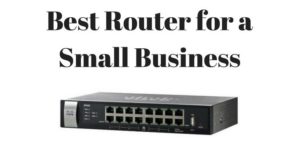
High Speed Internet
Confused about Business Routers? Got yourself a high speed Internet service, maybe an NBN Service and wondering why its not as good as you thought it would be?
Maybe your Internet Service provider (ISP) even threw in a brand new router to sweeten the deal. They tell you it’s a free business router too.
So then why is your high speed Internet so slow?
Free Routers
Most Internet Service Providers will provide you with a free modem or router so you can start using your service on the day it is delivered. Having you up and running on the day they visit also gives them the ability to start charging you for the service from that day on.
The free router you have been given is the most likely reason your High Speed Internet is so slow. Many tests have been done on the free routers provided by ISP’s. Take a look at this article: ACMA finds worst NBN modems ‘barely break’ 50Mbps wi-fi speeds.
NBN Co has even acknowledged the problem with some of these free devices.
There is no such thing as a free lunch. In a very competitive market, you should be very dubious about what you are going to get for free.
The problem
In order to provide an understanding of the problem, it is important to understand what a router is required to do. If you were to pull a very heavy trailer up a hill, you would need a vehicle that had adequate horsepower to do the job fast. If you use a car with very little horsepower, you may get up the hill but you will probably struggle.
Your router succumbs to the very same problem as the analogy of towing a very heavy trailer. Processing power is required to obtain the high speeds you are looking to achieve.
Processing Power
The higher the speed of the Internet service, the more processing power your router will need to sustain high speed communications to everything that is connected to it. The same is also true for the number of users connected to the Internet through the router. The more users the router needs to support, the more processing power the router will need.
How to tell what is good
There are many methods used to judge the performance of any given router. One of the most common, and most flawed, is sync speed. This is the speed in which your router connects to your Internet Service Provider. Just because you are connected at a very high speed does not mean that the router is capable of sustaining communications at that connection speed. We recommend that you ignore this parameter altogether.
What to look out for is a router that is capable of encrypting your Internet traffic (crypto technology) and is appropriately rated to provide that encryption at the maximum speed that your Internet Service is capable of. The methodology behind this recommendation is based on encryption requiring significant processing power to be implemented. If you are not encrypting your traffic then there is plenty of processing power available in the router to sustain high speed communication.
What we recommend
If you are a business that requires a router capable of supporting your 100 Mbps NBN Service a Cisco 1000 Series router is a great place to start. Depending on the model, these devices can provide encrypted traffic performance greater than 350 Mbps.
Various models of the Cisco 1000 Series are available depending on your needs. Please contact us for any assistance with choosing the model to best suit your specific needs.
Other things to look out for
As a business, the biggest issue you need to address in all facets of your business is adequate management. This is very relevant for the IT hardware and software that you use within your business. An unmanageable router is going to cause you more grief than the benefit it may provide in the initial cost saving that you may be considering.
Business grade routers also have the ability to enable a firewall function, logically segment your networks (VLAN), provide Context-aware security configuration and monitoring and traffic management. Few if any of these features are available on the free devices offered by ISP’s as the cost of the free device would outweigh the cost of the Internet Service that they are providing you.


